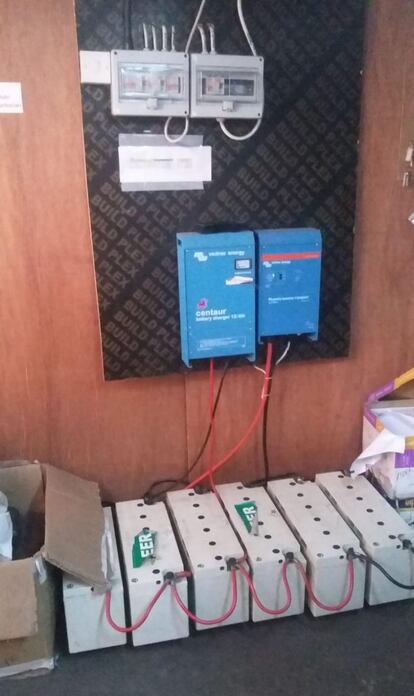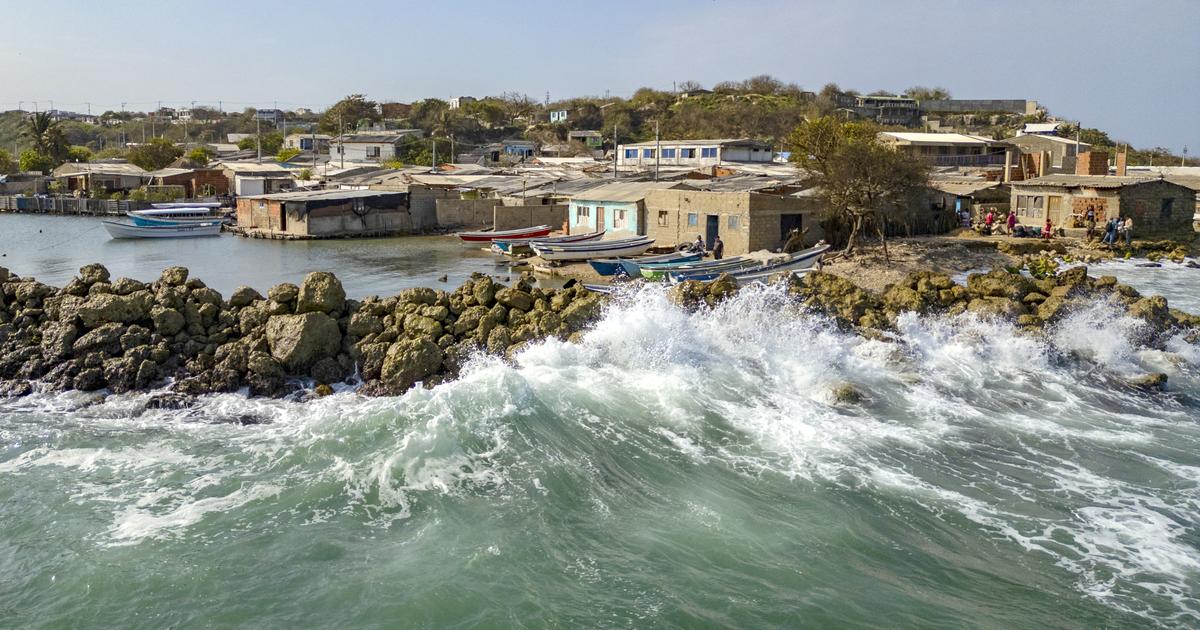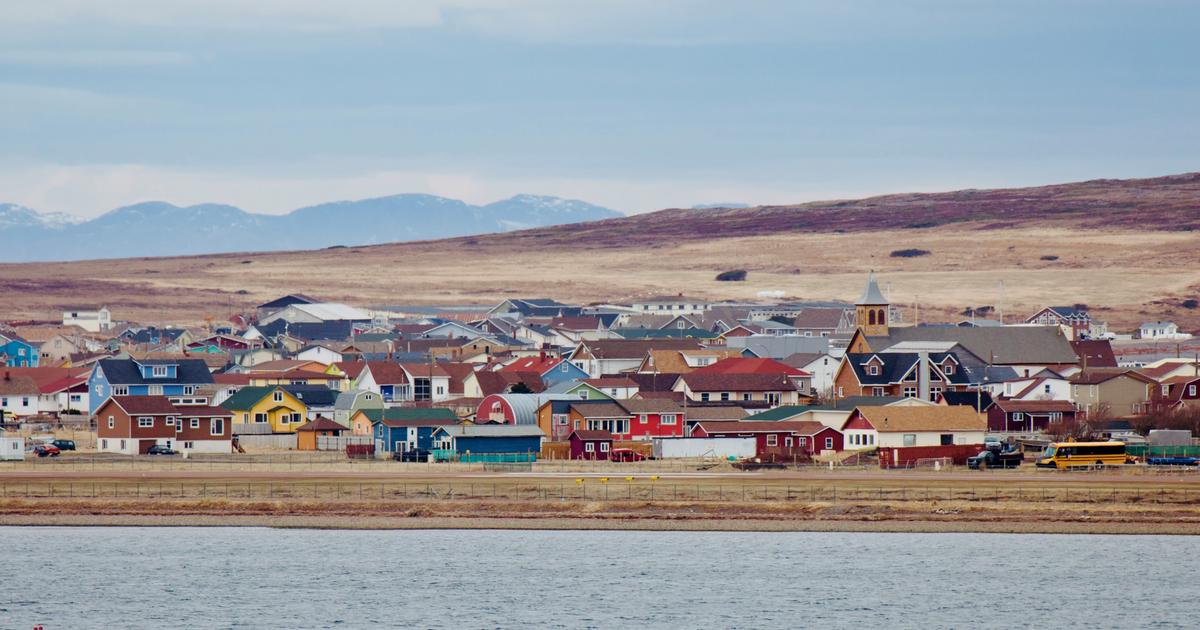Note to readers: EL PAÍS offers openly all the content of the Future Planet section for its daily and global contribution to the 2030 Agenda. If you want to support our journalism,
subscribe here.
The riddle
More information
One hundred years unsuccessfully searching for a vaccine for the deadliest infectious disease in history
Wherever medical care comes on donkeys
The young Sudanese girl who was a child soldier: "In my dreams, I kill another child"
You have a goat, a wolf and a cabbage and you are on a desert island in the middle of a lake.
The island is about to be covered by the rising waters and you have to take the three to the shore of the lake, save them and complete your task successfully.
But your boat is (laughably) small and unstable, so you can only take one of them on each trip.
The wolf and the goat are hungry.
If you take the wolf first, the goat will eat the cabbage.
If you take the cabbage first, the wolf will eat the goat.
Just when you think you have found the solution, leading the goat first and leaving the cabbage safe with the uninterested wolf, you realize that as soon as you have left the goat on the other shore, you will come face to face with him. same problem.
Despite my lack of skill with abstract scenarios, I have found that life in the field presents the same problems every day, but with very real consequences
Actually, it is a very old riddle that many of you will have heard more than once in your lives.
I have limited ability and even less patience with these kinds of riddles.
And once they tell me the solution, I often forget what that obvious third option was that always solves the seemingly unsolvable riddle.
However, despite my lack of skill with these abstract scenarios, I have found that life in the field presents the same problems every day, but with very real consequences.
The situation in real life
A girl has been in our clinic with tuberculosis for several days and her condition is deteriorating rapidly.
If you want a chance to recover, you need specialized medical care that we cannot offer you here.
Her only option is because we can send her to our clinic in Bentiu, relatively close, but at the same time very far, from where we are.
The seemingly
simple
task of getting the girl the care she needs has been complicated considerably by the difficult conditions we have to deal with in a place like this.
Conditions, on the other hand, very common in any of the projects of our organization:
Our clinic is new and has limited resources to treat complex cases.
Due to insecurity, the roads are dangerous and all patient transfers to Bentiu are made in a flight that lasts just 20 minutes, but also presents various logistical challenges.
It is the wet season and it has rained non-stop for weeks on end.
All supplies arrive at the project twice a week through that flight I mentioned earlier.
However, recent rains have rendered the runway unusable, canceling several flights and leaving us without basic goods or fresh food.
The girl needs oxygen therapy and her condition deteriorates rapidly if oxygen is withdrawn.
The project only has two oxygen concentrators powered by the electrical network.
Neither the plane that would take her to the clinic nor the vehicle that would take her to the airstrip have the power supply necessary to run the concentrators.
MSF's logistics team in South Sudan drew up a plan to transfer a patient in need of more advanced medical assistance.
The team
As the project logistics manager, my job is to carry out these types of transfers, taking into account not only medical indications, but also environmental constraints and safety concerns.
The obstacles to overcome are many and varied, but every time I am faced with a difficult situation, I remember one of the best advice they gave me when I joined MSF: “It doesn't take a genius to see what we don't have.
The challenge is knowing what to do with what we have ”.
And another of the things that most attracted me from the first moment is the fact that this organization does not send international personnel indiscriminately to its projects.
Instead, always prioritize recruiting and developing staff from the countries where we work.
And in most cases, they are perfectly qualified people with enormous dedication to the work they do.
So, this leads me to always keep these three things in mind: overcome obstacles with common sense and imagination, make the most of the elements we have and trust the local staff, who are the ones who really know the context in the one that we move.
With that said, I approach Rial, our logistics supervisor;
Machot, the specialist technician (in other words, he is the person who knows how to do everything and who gets you out of the most complicated quagmire) and Thak and Gabriel, the project coordinators.
And together we started brainstorming ideas to try to find the best possible solution and be able to take our patient safely to the Bentiu hospital.
The challenge
We write down the specific task at hand, describe the limitations and challenges we face, and sit down to discuss how to transfer our patient:
The patient needs to travel to Bentiu for advanced medical care.
Road trip is not an option.
The plane may not be able to land due to weather conditions.
The patient needs to be permanently connected to oxygen.
We have no way to feed the oxygen concentrator during the trip.
The third option
The trick to solving the riddle of the flooded island is not to complete the task by limiting itself to the few instructions they provide, but to go beyond the initial proposal, give it a twist and find that third option that is always hidden;
that is to say: solve the problem without breaking the rules.
Back in our reality on the ground, after much debate, planning and analysis, my colleagues and I identified our own third option.
And to carry it out, we agreed to implement a delicate plan:
Connect one of the oxygen concentrators to a mobile power source so that the patient can make the journey from the health post to the landing strip in one of our Land Cruisers.
Placing an emergency order for a battery powered oxygen concentrator that will arrive (fully charged) on that same plane that we will later use to transport the patient to Bentiu.
The preparations
The project only has two oxygen concentrators powered by the electrical network.
Neither the plane that would take her to the clinic nor the vehicle that would take her to the runway have the power supply necessary to run the concentrators.
On the surface, all of this may seem simple, but in a place like Bentiu nothing can be taken for granted.
Logically, the girl is not the only sick patient in our clinic and we cannot afford to do without the limited batteries or inverters that we need to power other activities, including our maternity, which these days are full of moms with their newborn babies.
As we try to decide where to get a generator from, my partner Rial kindly offers to temporarily donate the equipment that powered his family's shelter.
This act, which will temporarily leave them without basic lighting, is especially generous, as Rial knows perfectly well that we cannot guarantee that the team will return.
And much less in what conditions it will do it.
But he, instead of worrying, all he does is joke and tell us that the important thing is that the team is back when peace comes, because his plans to put a cafeteria depend on that source of energy.
Rial brings us the concentrator from his house and Machot and he begin to connect it.
Meanwhile, Thak and Gabriel rehearse the transfer to make sure that when push comes to shove there are no failures and we can carry it out as safely as possible.
Waiting
The flight will arrive in a few days.
If all goes well, we will not only transfer the patient to receive the simple and much-needed life-saving treatment, but we will also resupply ourselves with medications, logistics equipment and, finally, fresh food.
The following days pass with tension.
It's still raining sporadically and the track is getting soft and muddy.
Thak and I regularly make our way there to check conditions, hoping it dries up.
We fear the worst.
Days go by and it has continued to rain, but today Monday has been a surprisingly warm day.
Tomorrow is the key day.
If it does not rain during the night, it is possible that the flight can land and that we can make the transfer
I go to bed with a glimmer of hope in my weary mind.
Morning comes.
I wake up early to the faint sound of rain splashing my tent.
My soul falls to my feet.
I go out and the ground is soaked.
Even though it's only a light drizzle now, it must have rained all night.
What I did not expect is that I, the logistics expert and the only non-health person in the project, would have to be in charge of making a decision that will surely be life or death.
In a fit of denying the obvious, Thak and I drive to the runway as fast as we can, but the journey we normally take in seven minutes turns into almost 40, because the car is slipping and sliding from side to side. another down the muddy road.
We are dodging puddles larger than our own vehicle and we get stuck several times in the mud.
Although the muddy mud that was once a road already warns us about the conditions we may encounter when we get to the track, it makes my stomach knot as we pass the last bushes.
Little by little, the track appears before us.
The call
We stop the vehicle on the runway, now a huge puddle, and I get out.
The water covers me above the ankles.
I make the call I never would have wanted to make.
"Cancel the flight."
The impassable state of the road to the runway already made one suspect that the plane to transport a patient would not be able to land.
It is one of the hardest moments I have had to go through in my life.
I knew that working with MSF would be difficult and that I would often have to see death very closely.
I was very aware that I would have to get used to living with her.
But what I did not expect is that I, the logistics expert and the only non-health person in the project, would have to be in charge of making a decision that will surely be life or death, as our patient is in a very delicate situation.
The day after
A day has passed.
Yesterday we were all crestfallen trying to face our defeat.
We rescheduled the flight and he finally managed to land today, skidding down the still wet runway and spraying mud all over the fuselage.
A pilot shakes out of the cockpit, unable to finish a sentence.
The other laughs nervously and tells us that despite the relatively dry conditions today, landing was quite a challenge.
At last the much-needed supplies arrive, as well as fresh food and medicine, but today there is nothing to celebrate.
Tonight, despite the efforts of our medical team to keep her alive one more day, our young patient passed away after 17 days of receiving care.
A single day has made a difference.
The plane with medical supplies and was supposed to transport the girl with tuberculosis arrived, but later than expected.
Reflection
Several weeks have passed and when I return to this text, the day I first mentioned to the doctors that we were considering transferring our patient comes to mind, but that we still had to see how we would do it.
At the time, our midwife commented in passing that this was "like one of those problems that comes up in leadership courses."
This is where the comparison to the puzzle came from, as I found it an interesting starting point, especially when combined with what seemed like a classic MSF challenge in which an optimistic team triumphs against a slim chance of success.
However, after the girl's death, it did not seem appropriate to continue writing.
It all seemed too frivolous to me.
For many days I left this incomplete draft on my laptop desk, not daring to open it again, but unable at the same time to move it to the recycle bin.
I feel I have a moral obligation not to let this story fall into oblivion.
I remain concerned about the tone I chose, because it may seem disrespectful to our patient after everything that has happened.
And at the same time, I feel a moral obligation not to let this story fall into oblivion.
I think not telling her would be a much greater disrespect for her.
Our patient
I want to stay with the fact that, in her last days, this girl was happy.
She was always cared for by her mother and by all the MSF staff, who were very fond of her.
She laughed a lot and was very excited to be able to travel by car and plane in the same day.
She had never been in a car before, so it was quite an adventure for her.
Her mother was scared to death at the thought of having to fly, and she found that hilarious.
He kept making jokes with us.
I remember how she laughed when I tried to say a few words to her in Nuer, while the doctors and I explained to her and her mother what the transfer would be like.
It hadn't been long since it had been my birthday, and every time I stopped by his living room to check the electricity, I gave him some of the balloons that my classmates had given me.
He really liked playing with them.
When they ran out, I started giving him inflated rubber gloves.
He was laughing.
I think I have come to a conclusion: when I began to write this text, she was alive and we were trying to do everything possible so that her transfer could take place.
To change the tone for the fact that he finally passed away, would be to focus more on his death than on his life.
And it wouldn't be fair to her.
So I will share this story as you see it now.
As you have read it if you have come this far.
FUTURE PLANET can follow on
,
and
, and subscribe
here
to our 'newsletter'
.









